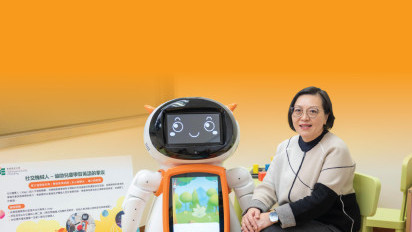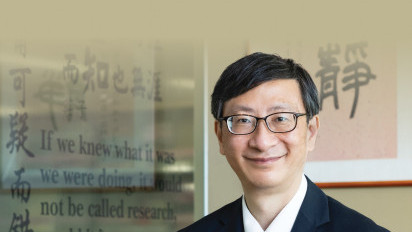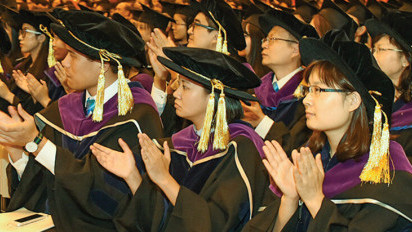Seven EdUHK innovations won a total of nine awards at the 50th International Exhibition of Inventions Geneva, in April.
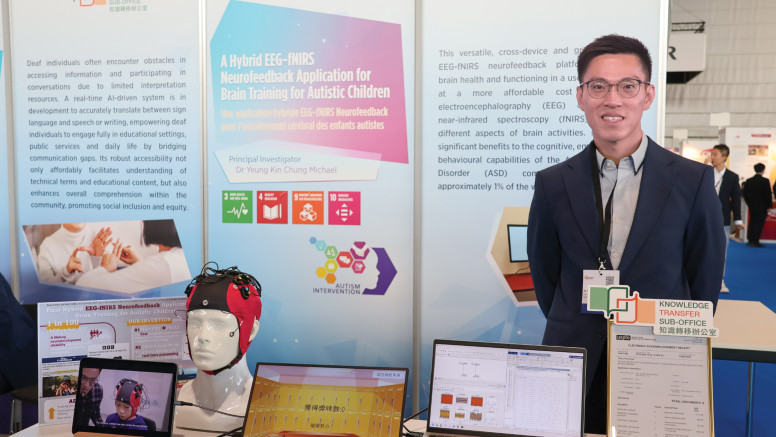
The winning projects were developed by research teams from various departments at the University and cover a wide range of fields, including artificial intelligence, biomaterials, neuroscience, sports, and educational technologies. Gold Medals were awarded to two projects on helping children with autism and treatment for cancer.
The team led by Dr Michael Yeung Kin-chung, Assistant Professor at the Department of Psychology, won a Gold Medal with Congratulations of the Jury and an International Special Merit Award. Their winning innovation, ‘A Hybrid EEG-fNIRS Neurofeedback Application for Brain Training for Autistic Children’ is a pioneering system which targets cognitive, emotional, and social functions in autism. It uses feedback stimuli, reward delivery, and progressive loading techniques to maximise efficacy and engagement in children.
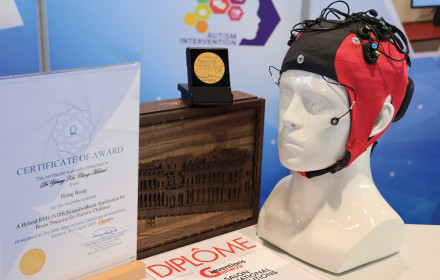
The other Gold Medal and International Special Merit Award-winning innovation is called ‘Novel Biomaterials Used for Dendritic Cell Vaccine for Cancer Immunotherapy’. The research team is led by Professor Ken Yung Kin-lam, Chair Professor of Biology and Neuroscience at the Department of Science and Environmental Studies. While traditional cancer treatments often rely on cell-killing cytotoxic agents, their invention enhances dendritic cell maturation using silica nanomatrices. This offers a safe and biocompatible approach to improve treatment efficiency, effectiveness and survival rates.
Professor Stephen Chow Cheuk-fai, Director of Knowledge Transfer, sees this recognition as deeply encouraging and reaffirming of the researchers’ dedication and hard work. “Participation at Geneva provides EdUHK researchers with opportunities to interact and collaborate with international innovators and industry executives. It also demonstrates our commitment to creating solutions that positively impact society and advance human well-being,” he says.
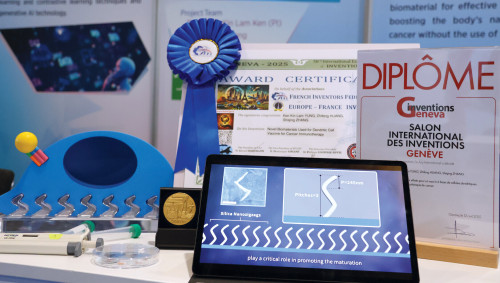
Professor Chetwyn Chan Che-hin, EdUHK Vice President (Research and Development) explains that EdUHK’s research initiatives have profound implications for societal advancement and human development, reflecting the University’s commitment to the UN Sustainable Development Goals (SDGs). “EdUHK aims to conduct impactful research with clear social benefits. We recently established the University Research Facility of Human Behavioural Neuroscience, the University Research Facility of Data Science and Artificial Intelligence, and the SDG Living Laboratory. Currently, 42% of our research outputs directly contribute to SDGs. The awarded inventions demonstrate our researchers’ exceptional ability to leverage science and technology to address societal and market needs, highlighting our dedication to knowledge transfer and the commercialisation of research outcomes. We will continue to champion innovation, driving the transformation of research into impactful and practical solutions,” he adds.
The International Exhibition of Inventions Geneva is widely regarded as one of the world’s most prominent platforms dedicated to inventions that push the boundaries of innovation. This year’s edition attracted around 1,050 entries from over 40 countries and regions. Since 2018, EdUHK innovations have won over 190 awards at local and international invention exhibitions.
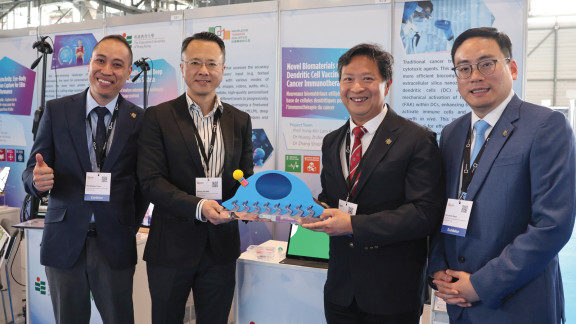
Other Research & Knowledge Exchange Articles


